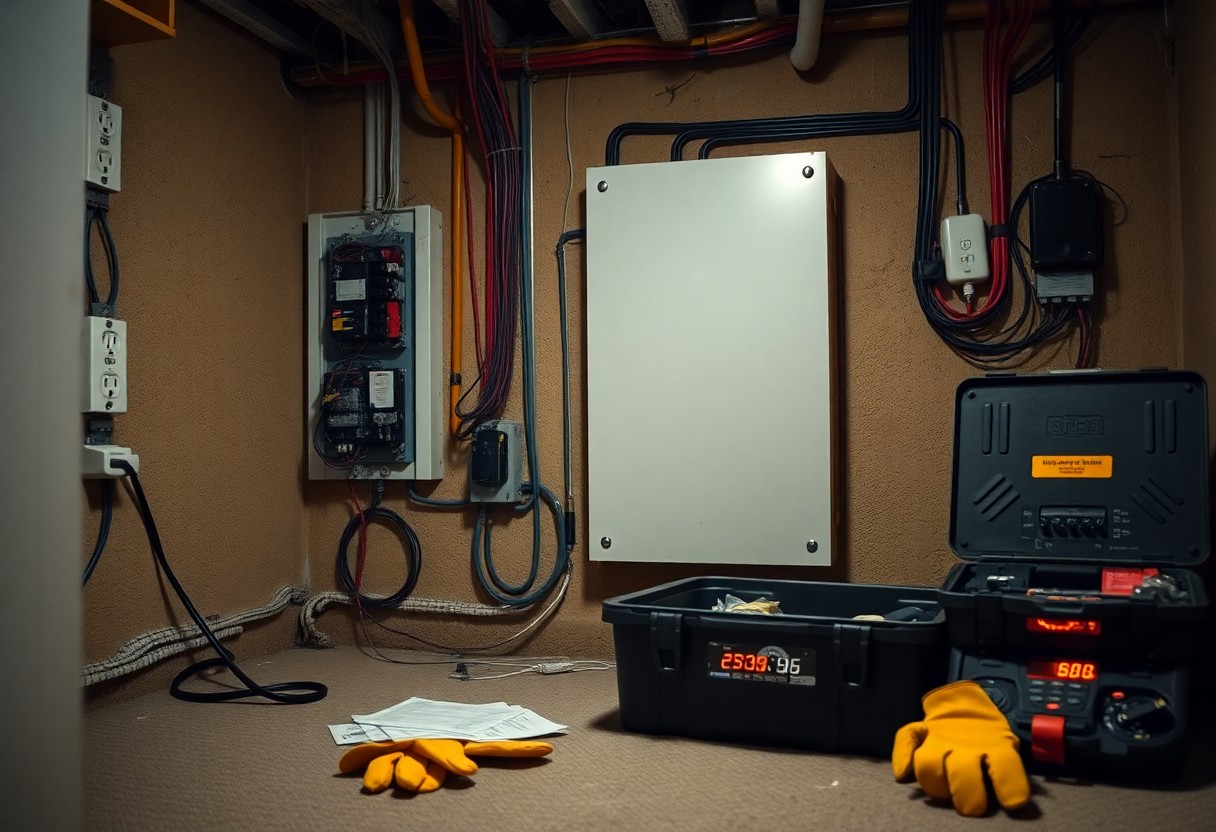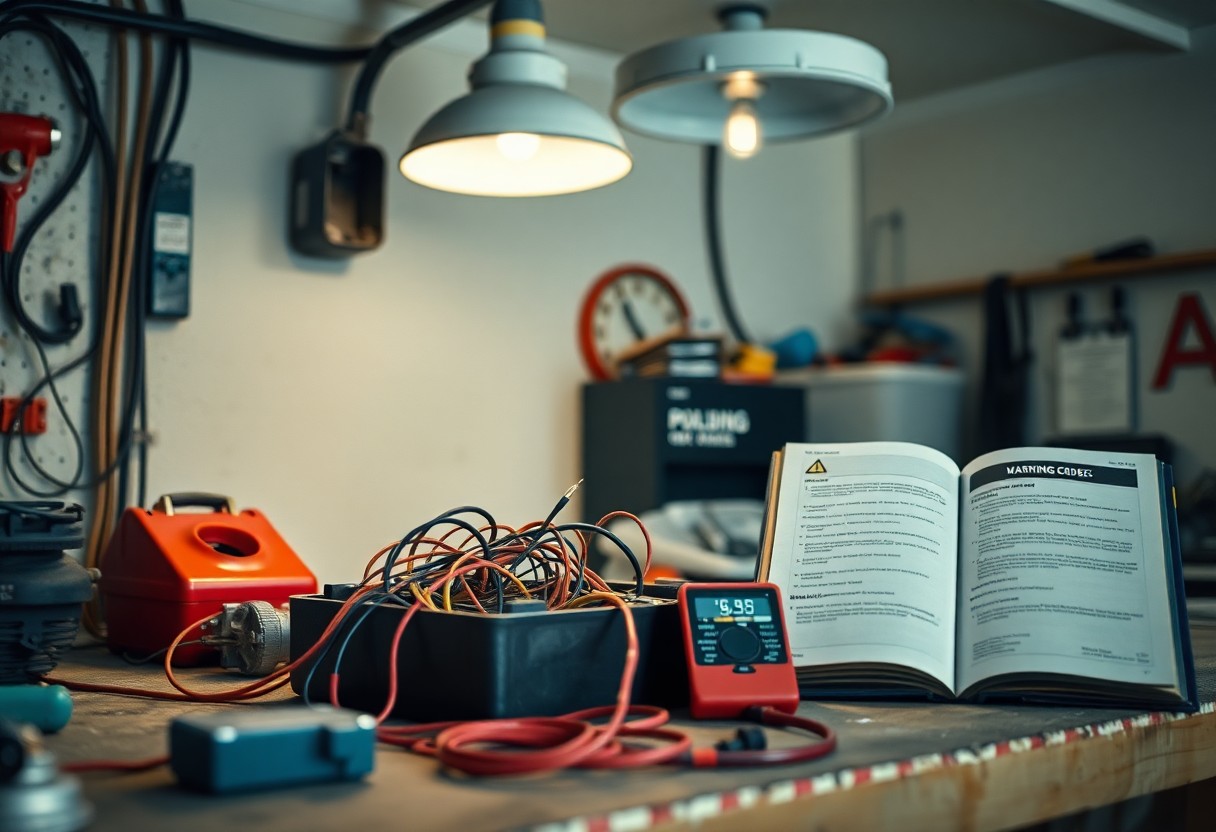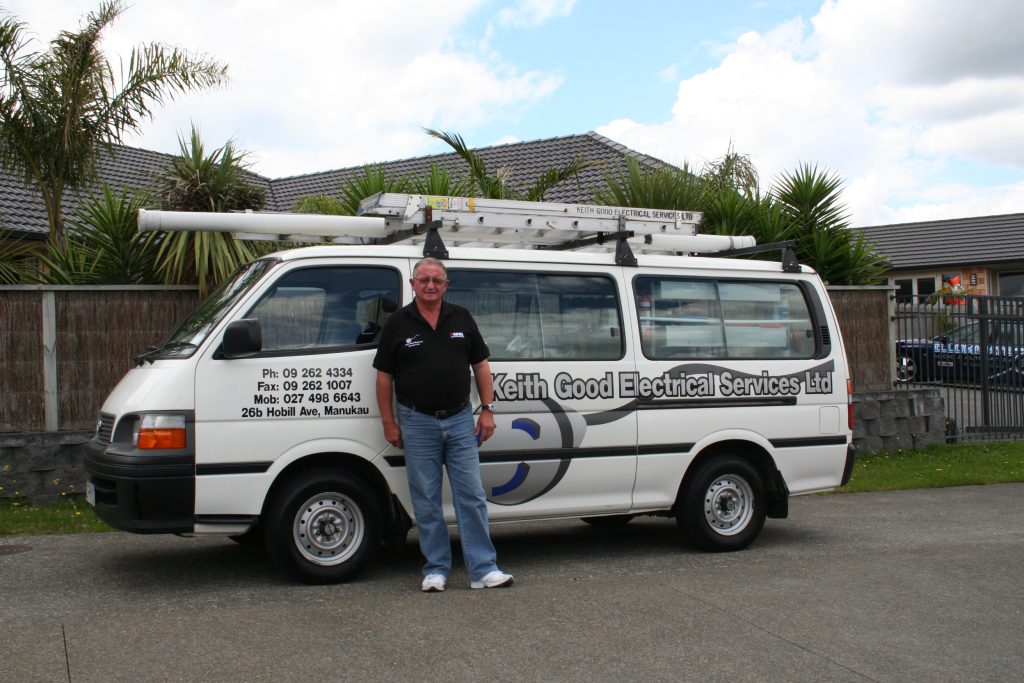Over the years, many homeowners in South Auckland have attempted DIY electrical projects, often encountering unforeseen costs and risks. While the intent to save money or gain experience is commendable, you need to be aware that improper electrical work can lead to significant financial burdens and safety hazards. This post unveils the hidden pitfalls of DIY electrical tasks, helping you understand what mistakes to avoid and how they can impact your budget and home’s safety.

Key Takeaways:
- DIY electrical work often leads to safety hazards, including electrical fires or shocks.
- Improper installations can violate local building codes, resulting in fines or required repairs.
- Complex electrical tasks may require specialized tools and knowledge, which most homeowners lack.
- Hiring professionals can prevent costly mistakes and ensure work is done to code.
- Insurance claims may be denied for damages caused by unqualified electrical work.

Understanding the Risks of DIY Electrical Work
Engaging in DIY electrical work exposes you to significant risks that can lead to costly mistakes. While the allure of saving money is tempting, the potential for accidents, property damage, and legal repercussions often outweighs the benefits. Understanding these risks is vital in making an informed decision about whether to tackle electrical projects on your own or call in a professional.
Common Hazards and Safety Concerns
Electrical work presents various hazards, including shock, electrocution, and fires. Unsafe handling of tools or materials can lead to critical injuries, especially if you lack proper training. For instance, a common mistake is overloading circuits, which can result in dangerous electrical fires. Your safety during these projects should always be your top priority.
Legal Implications and Requirements
DIY electrical work can have serious legal consequences if not performed according to local regulations. In South Auckland, specific laws govern electrical installations, and failing to comply can lead to fines or required removal of work done improperly. Engaging a licensed electrician ensures that you meet all standards and avoid costly penalties.
In South Auckland, the law mandates that certain electrical tasks must be completed by a licensed professional. For example, working on mains voltage systems typically requires adherence to strict codes aimed at safeguarding public and personal safety. Not obtaining the proper permits or failing inspections can result in significant repercussions either financially or through potential liability in case of an accident. Understanding these regulations underscores the importance of professional involvement to ensure compliance and safety. Property owners often overlook these details, leading to unwelcome surprises down the line.
Hidden Costs of DIY Electrical Projects
When you decide to tackle electrical projects yourself, you often overlook hidden costs that can greatly increase your overall expenses. These can stem from purchasing inadequate materials, not having the right tools, and the possibility of needing professional assistance after initial attempts. Each choice you make could lead to unexpected financial repercussions, easily dwarfing the initial savings you hoped to achieve.
Materials and Tools Expenses
Your DIY project may seem budget-friendly initially, but the necessity of quality materials and specialized tools quickly adds up. Cheap wiring or fixtures might save you money at first, but they can lead to failures or safety hazards. In addition, tools like voltage testers, wire strippers, and circuit analyzers are important yet costly investments that can strain your wallet.
Potential Damage and Repairs
Underestimating the potential for damage when undertaking DIY electrical work can be a significant oversight. Errors in installation can result in short circuits, electrical fires, or even property damage, requiring extensive repairs that could surpass the cost of hiring a licensed electrician. These costly repercussions don’t just impact your finances; they also pose serious safety risks to you and your property.
In many cases, the damage caused by improper installation can manifest in hidden ways. For instance, faulty wiring might cause appliances to fail, leading to costly replacements. In more severe cases, electrical fires could damage your home or belongings, resulting in repair bills that can climb into the thousands. Hiring a professional upfront, while appearing more expensive, can save you from substantial repair costs and protect your home from dangerous situations.
Case Studies of DIY Mistakes in South Auckland
Examining real-life case studies provides insight into the expensive mistakes homeowners in South Auckland have faced due to DIY electrical work. These examples underscore the potential risks and costs involved.
- Case Study 1: Homeowner attempted to rewire lighting, resulting in a $2,500 fire damage due to faulty connections.
- Case Study 2: Improperly installed kitchen outlets, leading to $1,500 in appliance damage and electrical repair.
- Case Study 3: DIY installation of a ceiling fan caused a $3,000 electrical bill during a significant service call.
- Case Study 4: Attempted panel upgrade that ended up costing $5,000 due to code violations and fines.
For further insights, read Why DIY Electrical Work Will Cost You More.
Costly Errors from Homeowners
Homeowners frequently underestimate the complexity of electrical work. Common mistakes such as mismatched wiring can result in malfunctioning circuits, or even fires, culminating in costly repair bills that far exceed any savings from DIY efforts. For instance, a minor error in circuit integration may escalate to thousands in damage and professional repair costs.
Professional Repairs: A Comparative Analysis
The cost of hiring professionals often pales in comparison to the expense of rectifying DIY errors. Hiring licensed electricians ensures compliance with regulations, providing peace of mind that the job is done correctly the first time.
Cost of DIY Mistakes vs. Professional Repairs
| DIY Mistake Costs | $2,500 – $5,000 |
| Professional Repair Costs | $150 – $450 |
Investing in professional services can save homeowners significant amounts in the long run. For example, engaging a licensed electrician for a typical wiring job may only cost between $150 and $450, while fixing mistakes from DIY jobs can lead to repair bills that skyrocket into thousands. It’s clear that the upfront savings of DIY often result in far more substantial costs down the line.
Long-term Financial Impact of DIY vs. Professional Help
| Potential Savings with DIY | – $200 |
| Long-term Damage Costs | $2,000 – $7,000 |
The Importance of Professional Expertise
As far as electrical work, professional expertise is invaluable. Licensed electricians possess not only the skills but also the knowledge of local codes and regulations, ensuring that your electrical system operates safely and efficiently. Their training allows them to identify potential hazards and implement solutions that an untrained eye might overlook, ultimately protecting your home and your family from dangerous situations.
Benefits of Hiring Licensed Electricians
Hiring licensed electricians ensures quality workmanship and safety. Their extensive training reduces the chances of errors that could lead to hazards like electrical fires or shock. Additionally, licensed professionals offer warranties on their work, giving you peace of mind that any issues will be promptly addressed without additional cost.
Long-term Savings versus Short-term Gains
While DIY electrical work may seem like a cost-saving option, the long-term expenses often outweigh the initial savings. Professional wiring installations not only meet code requirements but also enhance energy efficiency, potentially lowering your utility bills over time. Moreover, poor installations can lead to costly repairs, effectively negating any upfront savings you thought you achieved.
Consider the long-term ramifications of DIY projects. A simple mistake can lead to extensive damage, requiring not just repair costs but also potential fines for code violations. For instance, improper wiring may result in appliance failure or, worse, an electrical fire, which can cost thousands in damage. In contrast, investing in professional services ensures all electrical work is done right the first time, safeguarding your home and providing financial security in the years to come.
DIY Electrical Work: Evaluating Skill Levels
Evaluating your skill level is vital before commenceing on any DIY electrical project. Understanding the complexity of the task at hand helps you identify whether it’s within your expertise or better left to a professional. From basic tasks like changing light fixtures to more complex wiring jobs, assess your comfort and previous experience to avoid costly mistakes.
Assessing Individual Competence
When assessing your individual competence, consider both your technical knowledge and hands-on experience. Have you successfully completed similar tasks before? Are you familiar with electrical codes and safety practices? A realistic self-assessment can save you from undertaking projects that may exceed your skill set, leading to safety hazards and financial losses.
Training and Certification Resources
Many resources are available for those interested in enhancing their electrical skills. Online platforms, local community colleges, and trade schools offer courses on electrical theory, safety practices, and hands-on training. Additionally, seeking certifications can be a tangible way to demonstrate your knowledge and commitment to safe practices in electrical work.
Investing time in training can transform your skill set significantly. For instance, courses offered by institutions like the National Electrical Training Center provide foundational knowledge on wiring, safety standards, and local electrical codes. Local workshops often focus on practical skills, allowing you to learn in a supervised environment. Engaging in these courses not only builds your confidence but also prepares you for any potential responsibilities you may face in your DIY endeavors.
Conclusion
Presently, the allure of DIY electrical work may tempt you to save money, but the hidden costs of mistakes can far exceed your initial savings. In South Auckland, overlooking professional standards can lead to hazardous situations and expensive repairs. Ensuring safety and compliance with regulations not only protects your home but also your finances in the long run. Investing in qualified electrical services may seem like a higher upfront cost, yet it is a wise decision that ensures peace of mind and the safety of your living environment.
FAQ
Q: What are the common mistakes people make when doing DIY electrical work?
A: Common mistakes include inadequate wiring, ignoring local codes, overloading circuits, failing to turn off power before starting, and using improper materials.
Q: How can I ensure my DIY electrical project is safe?
A: To ensure safety, always turn off the power at the circuit breaker, use a voltage tester, follow electrical codes, and consider consulting a professional if unsure about any aspect.
Q: What are the long-term costs of poor DIY electrical work?
A: Poor DIY electrical work can lead to higher energy bills, increased repair costs due to fire hazards or damages, and potential liability issues if selling the property.
Q: Are there specific electrical tasks I should avoid as a DIYer?
A: DIYers should avoid tasks involving major rewiring, panel upgrades, and installing new circuits. These tasks typically require professional expertise to ensure safety and compliance.
Q: What permits or inspections are necessary for DIY electrical work in South Auckland?
A: DIY electrical work in South Auckland often requires permits and may need inspections to ensure compliance with local regulations. Check with the local council for specific requirements.
